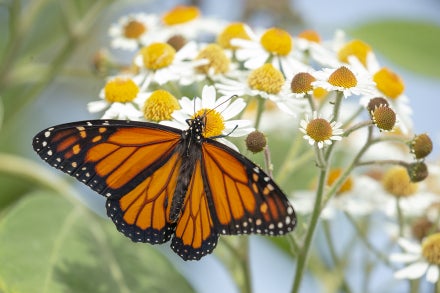Image

The feeling of love and empathy for animals is very much influenced by one’s culture and upbringing. How can people conserve endangered animals if they do not love them? How do people come to love and appreciate animals? These are the kinds of questions I often ponder, and I am eager to find ways to help people, especially children, bond with animals.
Over the last five years, I have been exploring the topic of love and empathy toward animals and learning how to cultivate these sentiments in children who are in my Little Green Guards program. Little Green Guards are children living in conservation priority areas that have an underdeveloped economy and education system. The goal of the program is to build a strong and lasting love for animals in children, ultimately empowering them to become conservation stewards of their natural heritage.
Because personal experience can create deep impressions, it is important to include many field trip opportunities for Little Green Guards to fall in love with animals and nature. In Fanjingshan, China, my collaborators and I recently used our camera-trap research project as a way to introduce local schoolchildren to wildlife that may be difficult to see in the nearby forest.
Before going to the field we explained the science behind our camera-trap research to the children, how the cameras have helped us understand the “secrets” of many amazing animals, some active in the day and some at night. We then tantalized the children with our best photos and the “surprises” we discovered. The children would “Ooh!” and “Aah!” as they looked at the photos—the excitement for camera-trapping was escalating!
[caption id="attachment_34386" align="aligncenter" width="998"] (Photo by Lei Shi)[/caption]
Out in the forest, we selected a relatively flat area with a sturdy tree. We then showed the kids how to properly install batteries and the memory card, program the settings, and finally mount the camera. When all the preparation was done, the children practiced taking “selfies,” one by one, by triggering the sensor in front of the camera and saying “Qiezi!” (the Chinese version of “Cheese!”). Beyond just having fun, this Little Green Guards lesson allowed us to teach the children not only about animal biology and caring for their wildlife neighbors but also essential life skills so they can develop healthy self-esteem, despite their rural circumstances.
(Photo by Lei Shi)[/caption]
Out in the forest, we selected a relatively flat area with a sturdy tree. We then showed the kids how to properly install batteries and the memory card, program the settings, and finally mount the camera. When all the preparation was done, the children practiced taking “selfies,” one by one, by triggering the sensor in front of the camera and saying “Qiezi!” (the Chinese version of “Cheese!”). Beyond just having fun, this Little Green Guards lesson allowed us to teach the children not only about animal biology and caring for their wildlife neighbors but also essential life skills so they can develop healthy self-esteem, despite their rural circumstances.
 The success of the Little Green Guards program will require long-term efforts and reaching out to as many communities as possible around Fanjingshan and other protected areas in China as well as in Vietnam and Madagascar. As the citizens who live adjacent to natural habitats form the front line of defense in protecting local biodiversity, we imagine that our Little Green Guards program may have a substantial positive influence on people’s attitudes toward conservation. We hope that one day every child in the Little Green Guards program will develop affection for wildlife so that when that day comes, we can all smile and say “Qiezi!”
Chia Tan, Ph.D., is a senior scientist in the Conservation Partnership Development Division of the San Diego Zoo Institute for Conservation Research. Read her previous post, Have Camera Trap, Will Travel.
The success of the Little Green Guards program will require long-term efforts and reaching out to as many communities as possible around Fanjingshan and other protected areas in China as well as in Vietnam and Madagascar. As the citizens who live adjacent to natural habitats form the front line of defense in protecting local biodiversity, we imagine that our Little Green Guards program may have a substantial positive influence on people’s attitudes toward conservation. We hope that one day every child in the Little Green Guards program will develop affection for wildlife so that when that day comes, we can all smile and say “Qiezi!”
Chia Tan, Ph.D., is a senior scientist in the Conservation Partnership Development Division of the San Diego Zoo Institute for Conservation Research. Read her previous post, Have Camera Trap, Will Travel.
 (Photo by Lei Shi)[/caption]
Out in the forest, we selected a relatively flat area with a sturdy tree. We then showed the kids how to properly install batteries and the memory card, program the settings, and finally mount the camera. When all the preparation was done, the children practiced taking “selfies,” one by one, by triggering the sensor in front of the camera and saying “Qiezi!” (the Chinese version of “Cheese!”). Beyond just having fun, this Little Green Guards lesson allowed us to teach the children not only about animal biology and caring for their wildlife neighbors but also essential life skills so they can develop healthy self-esteem, despite their rural circumstances.
(Photo by Lei Shi)[/caption]
Out in the forest, we selected a relatively flat area with a sturdy tree. We then showed the kids how to properly install batteries and the memory card, program the settings, and finally mount the camera. When all the preparation was done, the children practiced taking “selfies,” one by one, by triggering the sensor in front of the camera and saying “Qiezi!” (the Chinese version of “Cheese!”). Beyond just having fun, this Little Green Guards lesson allowed us to teach the children not only about animal biology and caring for their wildlife neighbors but also essential life skills so they can develop healthy self-esteem, despite their rural circumstances.
 The success of the Little Green Guards program will require long-term efforts and reaching out to as many communities as possible around Fanjingshan and other protected areas in China as well as in Vietnam and Madagascar. As the citizens who live adjacent to natural habitats form the front line of defense in protecting local biodiversity, we imagine that our Little Green Guards program may have a substantial positive influence on people’s attitudes toward conservation. We hope that one day every child in the Little Green Guards program will develop affection for wildlife so that when that day comes, we can all smile and say “Qiezi!”
Chia Tan, Ph.D., is a senior scientist in the Conservation Partnership Development Division of the San Diego Zoo Institute for Conservation Research. Read her previous post, Have Camera Trap, Will Travel.
The success of the Little Green Guards program will require long-term efforts and reaching out to as many communities as possible around Fanjingshan and other protected areas in China as well as in Vietnam and Madagascar. As the citizens who live adjacent to natural habitats form the front line of defense in protecting local biodiversity, we imagine that our Little Green Guards program may have a substantial positive influence on people’s attitudes toward conservation. We hope that one day every child in the Little Green Guards program will develop affection for wildlife so that when that day comes, we can all smile and say “Qiezi!”
Chia Tan, Ph.D., is a senior scientist in the Conservation Partnership Development Division of the San Diego Zoo Institute for Conservation Research. Read her previous post, Have Camera Trap, Will Travel.



